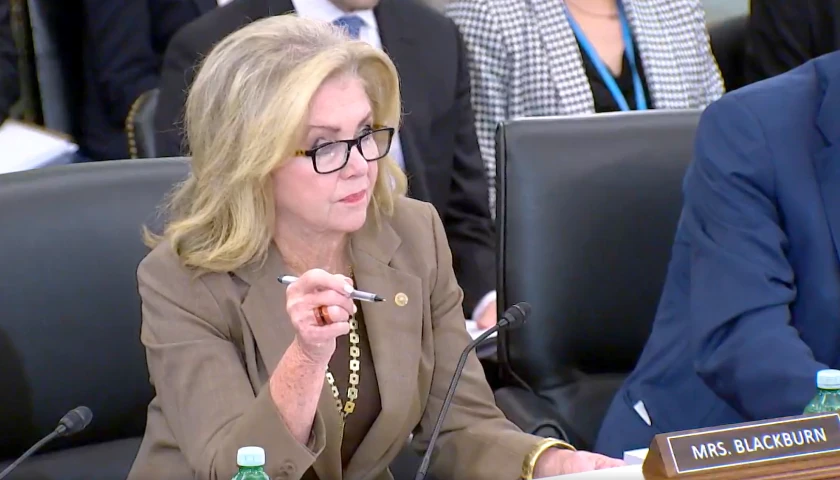by Spencer Pauley
New poll data of registered and potential voters reveals a general consensus that artificial intelligence could pose a threat to people as it further develops.
Artificial intelligence, or AI, is technology broadly used to complete tasks, learn information, and enable computers to perform tasks that typically require human intelligence. Recently, AI technology has become more sophisticated and more widely used at an increasing rate.
However, recent polling data from Noble Predictive Insights shows that the majority of U.S. citizens don’t believe AI is developed enough to impact their jobs or lives, but could do so in the future.
Noble Predictive Insights conducted the poll from July 8-11 and surveyed registered voters across the U.S. The sample included 2,535 respondents, which consisted of 1,073 Republicans, 1,221 Democrats, and 241 independents. Out of the full sample of registered voters, 2,295 were qualified as “likely voters.” It has a margin of error of 2.0%. The Center Square Voters’ Voice Poll is one of only six national tracking polls in the United States.
When poll participants were asked if they agreed with the statement “I’m worried that AI will take my job,” 55% of registered voters and 54% of likely voters disagreed.
Results for the prompt of “When I interact with a chatbot like ChatGPT, I can trust that the information I receive is correct” indicate that U.S. voters do not believe AI is developed fully. According to poll results, 51% of likely voters disagree and 34% agree, whereas 49% of registered voters disagree and 35% agree.
Noble Predictive Insights Chief of Research David Byler said the results show that people are aware of a hallucination risk in the short term when it comes to AI, but that the current state of AI will not flip the economy upside down.
Despite the general consensus that voters are not threatened by AI now, results show there is concern for the future.
The majority of participants, 64-65%, believe that if AI is used carelessly or inappropriately, it could pose a threat to “the survival of the human race.”
Around 55% of all participants say AI could have some kind of impact on their lives, according to the data.
Byler notes that the prompt is broad so not all poll respondents think continually developing AI will have a specifically negative impact on their lives.
“There’s a part of about 36% that says ‘I’m worried this will take my job,’ and there is a larger part – over half that says ‘yeah I think this is going to have an impact on my life,” Byler said to The Center Square in a video call. “I think the implication is that among people who think that it will have an impact on their life, some can really imagine the negatives and some can really imagine the positives.”
Lastly, 55% of voters and 54% of potential voters do not believe that AI companies won’t share their personal data. In 2022, U.S. President Joe Biden directed the White House Office of Science and Technology Policy to create the “Blueprint for an AI Bill of Rights,” which is a set of five principles to help guide the design, use and deployment of automated systems.
The blueprint is intended to protect citizens’ information as AI use continues to become more common.
The five principles identified are: safe and effective systems, algorithmic discrimination protections, data privacy, notice and explanation, and human alternatives.
– – –
Spencer Pauley reports on Seattle and the King County area of Washington. He was previously an independent filmmaker and worked on “The Clinton Affair,” a documentary series investigating the impeachment proceedings of former President Bill Clinton. Pauley currently works as a staff reporter for The Center Square.
Photo “ChatGPT” by Matheus Bertelli.





